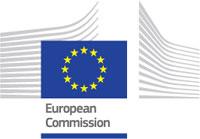
The European Commission presented its new Action plan on integration and inclusion 2021-2027.
The responsibility for migrant integration policies in the EU lies primarily with the EU countries. However, the EU has established a large variety of measures to incentivise and support national, as well as regional and local, authorities and civil society in their efforts to promote integration. The current action plan proposes concrete actions, gives guidance and delineates funding for initiatives meant to bring inclusion for all.
Main action areas
The document fcuses on the main areas of:
- Inclusive education and training from early childhood to higher education, focusing on easier recognition of qualifications and continued language learning, with support from EU funds.
- Improving employment opportunities and skills recognition to fully value the contribution of migrant communities, and women in particular, and ensure that they are supported to reach their full potential. The EC will work with relevant stakeholders to promote labour market integration, support entrepreneurship and make it easier for employers to recognise and assess skills.
- Promoting access to health services, including mental healthcare, for people with a migrant background. In addition to dedicated EU funding, the action plan seeks to ensure people are informed about their rights and recognises the specific challenges faced by women, in particular during and after pregnancy. The action plan also supports Member States to exchange best practice.
- Access to adequate and affordable housing funded through the European Regional Development Fund (ERDF), European Social Fund Plus (ESF +), Asylum and Migration Fund (AMF) and Invest EU, as well as an exchange of experience at local and regional level on fighting discrimination on the housing market and segregation.
A number of 'horizontal actions' also come to promote, across all of the main areas of integration listed above, better cooperation between different actors, enhanced use of new technologies, increased access to EU funding, and more.
Other highlights
The document builds upon the previous successful 2016 action plan - see an overview of it here, targeting the same main areas of integration.
Its scope however also expands to include the integration of EU citizens of migrant background, in addition to third-country nationals (TCNs).
The current plan also bring additional focus on:
- ensuring inclusion for all, including through targeted and tailored support
- enhancing migrant participation, including through the recent formation of an Expert Group on the views of migrants with the EC
- mainstreaming gender and including women
- building more partnerships with various integration stakeholders
- closer cooperation with regional and local authorities
- more emphasis on long-term integration, including through funding
In the end of 2024, an interactive tool will be developed on EWSI to track the progress on the action plan.
Useful resources
Conceiving the plan, the EC asked all stakeholders to take part in a public consultation and give their insight on integration. Read a synthetic report from the open consultation.
See a report from further consultations with specific stakeholders.
Subscribe to the EWSI newsletter for news about the action plan, initiatives and (funding) opportunities.
Details
- Publication dates
- Geographic area
- EU Wide
- Source
- Posted by
